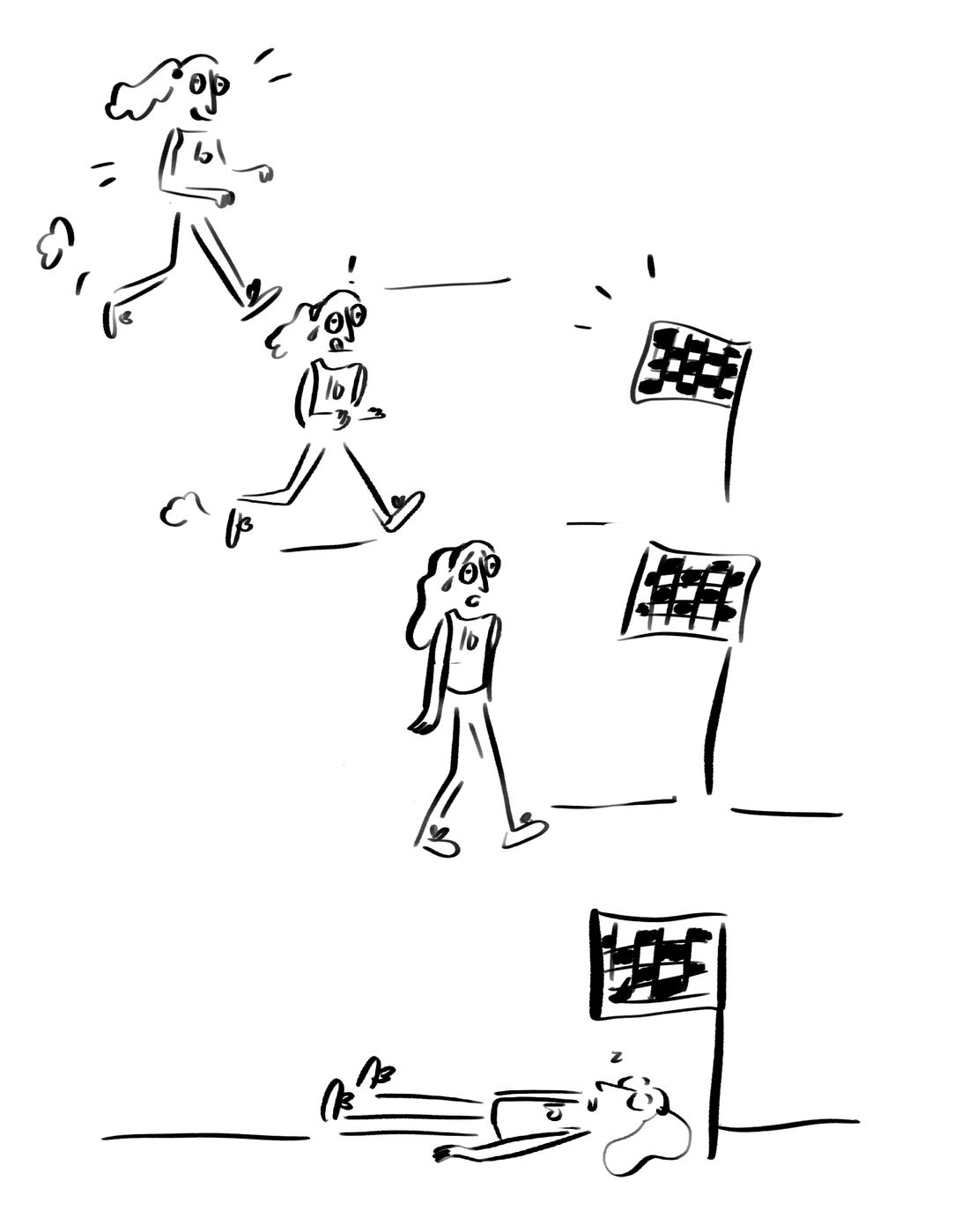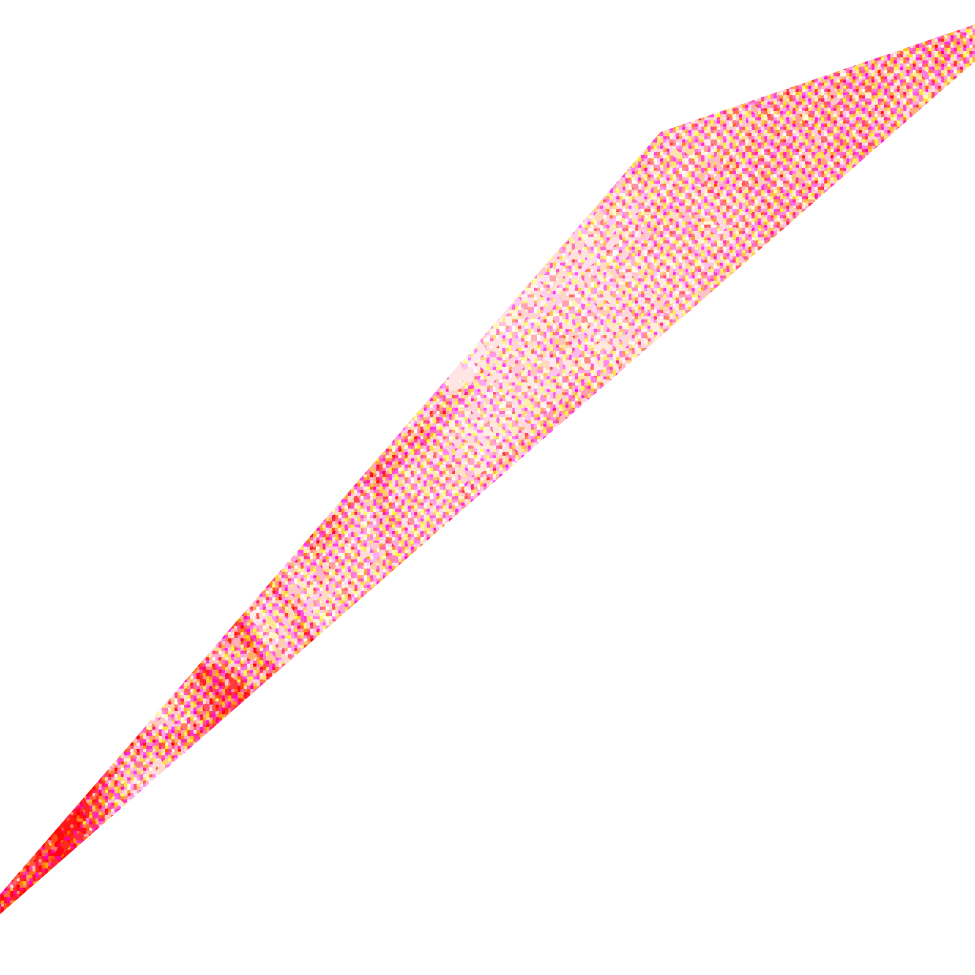As the year draws to a close, we asked Anna Codrea-Rado to share a piece of writer-to-writer advice about taking stock of one’s creative accomplishments. Anna writes Lance, a publication all about building a freelance career without burning out. Read on for her advice, or listen to her read it aloud above.
Dear writer,
How do you stop to recognize what you've accomplished? And how do you refocus and refresh when starting a new chapter?
Dear writer,
On the eve of a breakup, a past boyfriend said to me that I’d never be happy because I’m always looking for something else.
Over a decade later and the memory of that remark still stings. Not because I regret dumping him, but because he’d touched on something that I was (and still am) prone to doing: ambitiously going after something but not stopping to appreciate its fruits.
I share this relic from my relationship graveyard to confess that I too struggle to recognize my accomplishments. And before I can attempt to answer what you can do about that, first I want to ask: why can’t you recognize what you’ve accomplished?
Earlier this year, I wrote my first book and while I knew it was a huge milestone, I couldn’t feel it. So much so, that I felt uncomfortable whenever other people told me how proud I must be of myself. I started calling this inability to see my own success "productivity dysmorphia.” The pursuit of productivity spurs us to do more while at the same time robbing us of the ability to savor any success we might encounter along the way. As for why it happens, personally, I think the biggest culprit is our toxic work culture which not only moves the goal posts, but then tells us that if we miss, that’s our personal failing.

The pursuit of productivity spurs us to do more while at the same time robbing us of the ability to savor any success we might encounter along the way.
There’s a badly wrapped gift to be had here: This stuff isn’t your fault! This partly explains why I’ve only ever had mixed results in my attempts to do something about it. Because believe me, I’ve tried all the hacks for recognizing my achievements. The big one is writing down your wins at the end of each day. Seems like a no-brainer for a writer, right? Make yourself feel better about your writing by writing about it? And indeed, scribbling “Wrote 1,000 words today” in my bullet journal does make me feel smug.
When I’m fretting about my newsletter, a game I like to play is zooming in and out of the graph in the “Subscriber” tab. There, I can see my growth over the last 30 days, 90 days, and all time. My 30-day chart looks like a rollercoaster; a rickety track of dizzying climbs preceded by stomach-flipping descents. Then I toggle to the 90-day view and things look a little gentler. At the “all-time” setting, all the bumps are smoothed out into a healthy line that clearly points upwards. At that distance, I have an uninterrupted view of how much further along I am now from my starting position.
These tactics (or maybe it’s better to call them reflections) have definitely helped me better appreciate my achievements, but only ever after the fact. It’s a bit like how I experience the benefits of exercise, not so much in the moment of doing it, but only after a period of inactivity when I feel terrible for its absence.
As the French political theorist, Germaine de Staël wrote, “The human mind always makes progress, but it is a progress in spirals”. And so, I don’t think the move is to throw out these acts of reflection, but rather to accept their limitations.
“The human mind always makes progress, but it is a progress in spirals” ~ Germaine de Staël
Then the question becomes, how can we recognize our accomplishments in the moment?
For me, the answer lies in getting back to why I write in the first place. I believe that the writing subjects we’re drawn to aren’t random. Richard Bach, the American writer said, “We teach best what we most need to learn.” And I think the same is true for writing—I write best about the things I need to work out for myself.
I find this to be particularly important to remember at the close of one chapter and the beginning of another. And if you too are at a similar crossroads right now and struggling with which direction to take next, try asking yourself the following question: Even if no one read me, what would I write about?
It’s easy to lose sight of why you’re even writing in the first place, so recentring can be a powerful way to help you get unstuck. Asking yourself this simple question will help you reconnect with your writing and remind you why you’re even doing it in the first place. You’ll be surprised how clearly the answer will come to you. And remember, the sheer act of even asking these kinds of questions is a celebration of how just far you’ve come.
Sincerely,
Anna
This is the second in a recurring series of longform writer-to-writer advice, following Mason Currey’s advice column on creative growth.
Could you use some advice or inspiration from a fellow writer about creativity, motivation, and the writing life? Submit your question for consideration for a future advice column by leaving it in the comments below, or entering it (with the option to remain anonymous) using this form.


















Share this post